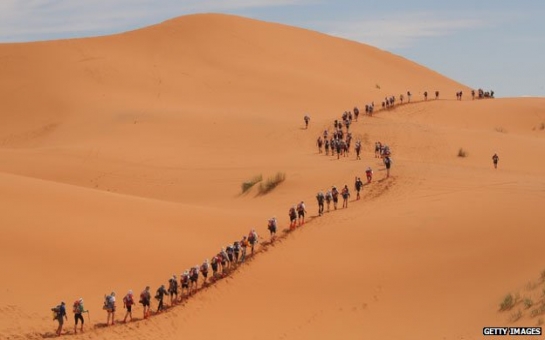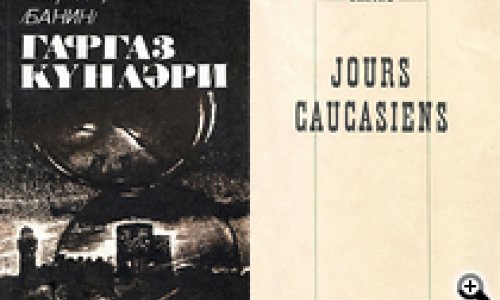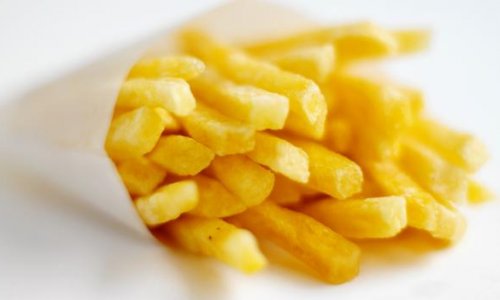Follow us !
How I drank urine and bat blood to survive
Society
17:30 | 27.11.2014

How I drank urine and bat blood to survive
(BBC) - Mauro Prosperi was 39 years old when he took part in the 1994 Marathon des Sables - a six-day, 250km (155-mile) race through the Sahara described as the toughest race of its kind. Following a sandstorm, the former Olympic pentathlete was lost in the desert for 10 days. Here he tells his story.What I like most about running extreme marathons is the fact that you come into close contact with nature - the races take place in beautiful settings such as mountains, deserts, glaciers. As a professional athlete I hadn't been able to enjoy these surroundings because I was so focused on winning medals.I found out about the Marathon des Sables by chance. I had already retired from the pentathlon when a good friend said to me: "There's this amazing marathon in the desert - but it's very tough." I love a challenge so I started training immediately, running 40km (25 miles) a day, reducing the amount of water I was drinking to get used to dehydration. I was never home.My wife, Cinzia, thought I was insane - the race is so risky that you have to sign a form to say where you want your body to be sent in case you die. We had three children under the age of eight, so she was worried. I tried to reassure her. "The worst that can happen is that I get a bit sunburned," I said.When I arrived in Morocco, I discovered a marvellous thing - the desert. I was bewitched.These days the Marathon des Sables is a very different experience, with up to 1,300 participants it's like a giant snake - you couldn't get lost if you tried. But back in 1994 there were only 80 of us, and very few who were actually running, so most of the time I was on my own.I was always the first Italian to reach the next stage and I'd put up a flag on my tent so that we could all get together in the evenings. It was fun.Things went wrong on the fourth day, during the longest and most difficult stage of the race.When we set out that morning there was already quite a bit of wind. I had passed through four checkpoints when I entered an area of sand dunes. I was alone - the pacemakers had gone ahead.These days the Marathon des Sables is a very different experience, with up to 1,300 participants it's like a giant snake - you couldn't get lost if you tried. But back in 1994 there were only 80 of us, and very few who were actually running, so most of the time I was on my own.I was always the first Italian to reach the next stage and I'd put up a flag on my tent so that we could all get together in the evenings. It was fun.Things went wrong on the fourth day, during the longest and most difficult stage of the race.When we set out that morning there was already quite a bit of wind. I had passed through four checkpoints when I entered an area of sand dunes. I was alone - the pacemakers had gone ahead.I woke up very early to a transformed landscape. I didn't know I was lost. I had a compass and a map so I thought I could navigate perfectly well, but without points of reference it's a lot more complicated.I wasn't worried because I was sure that sooner or later I'd meet someone. "Who knows how many others are in the same situation?" I thought. "As soon as I see someone we can team up and get to the finish together." That was my plan, but unfortunately it didn't work out.When I realised I was lost, the first thing I did was to urinate in my spare water bottle, because when you're still well-hydrated your urine is the clearest and the most drinkable. I remembered my grandfather telling me how, during the war, he and his fellow soldiers had drunk their own urine when their water ran out. I did it as a precaution, but I wasn't desperate. I was sure the organisers would find me soon.When running the Marathon des Sables you have to be self-sufficient, and I was well-prepared: I had a knife, a compass, sleeping bag and plenty of dehydrated food in my backpack. The problem was water. We were given fresh water at the checkpoints, but when the storm hit I only had half a bottle of water left. I drank it as slowly as I could.I'm very resistant to heat and I was very careful. I would only walk when it was cool, early in the morning and then again in the evening. During the day, when I wasn't walking, I'd try to find shelter and shade. I was wearing two hats - a baseball cap with a red woollen hat on top - to keep the temperature as constant as possible. Luckily my skin is quite dark so I didn't really suffer from sunburn.Bakudaily.Az










